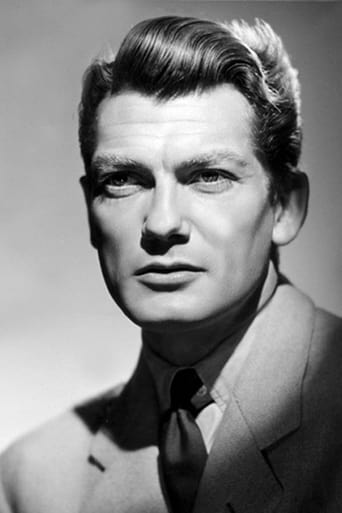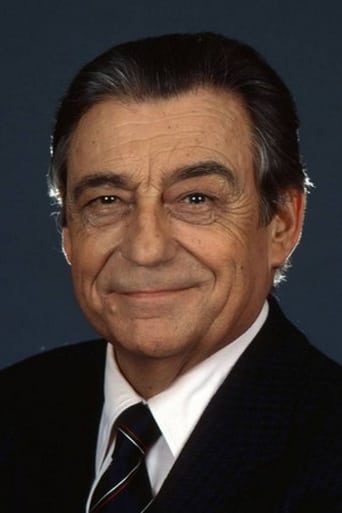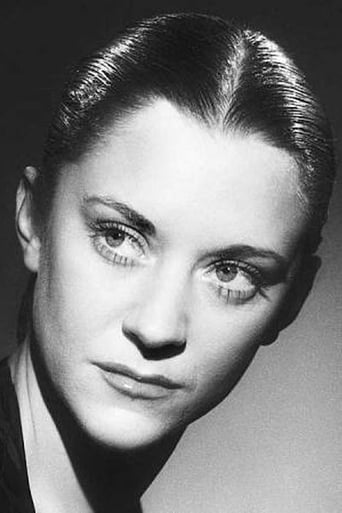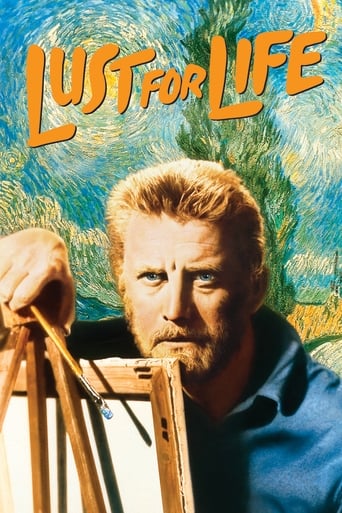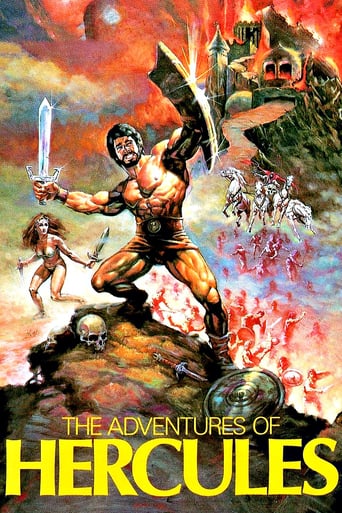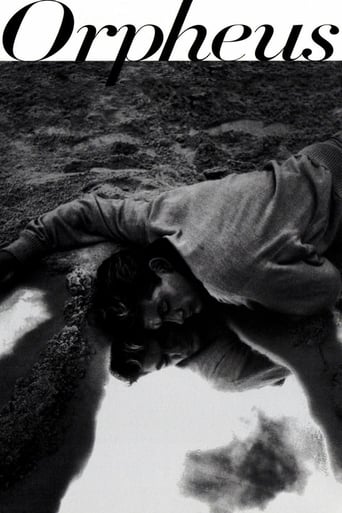
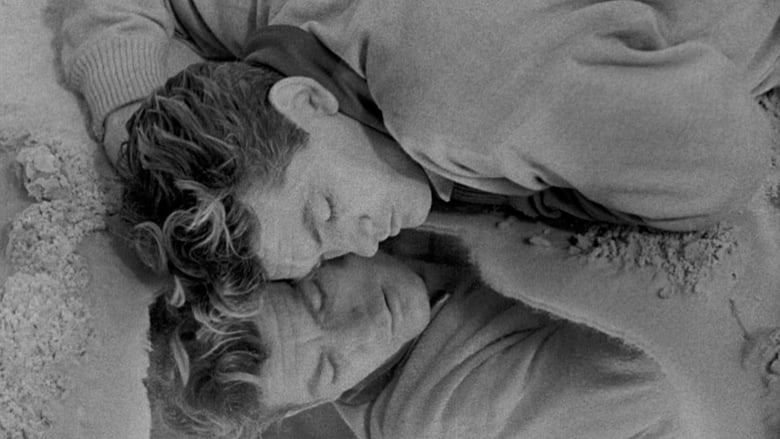
Orpheus (1950)
A poet in love with Death follows his unhappy wife into the underworld.
Watch Trailer
Cast
Similar titles
Reviews
You won't be disappointed!
Brilliant and touching
The best films of this genre always show a path and provide a takeaway for being a better person.
The film never slows down or bores, plunging from one harrowing sequence to the next.
Do you wanna hear something so utterly demented that it's downright laughable?In this updated tale about the myth of Orpheus there exists a truly idiotic subplot.And, it goes like this - There's a large group of snobbish, young adult poets (and poet wannabes) who are so irrationally emotional about poetry that (when they collectively decide to hate another's poems) they will actually gather in packs and (get this!) resort to hostility and violence against the poet-outcast.Ha! Isn't that a laughable scream?..... And, on top of this truly goofy subplot - This 1950, French production was all pretty dreary stuff to me.Not only was Orpheus' story told in the driest and flattest fashion imaginable - But its total lack of visual imagination (where I couldn't tell the diff between the "Land of the Living" and the "Land of the Dead") left me completely unmoved.Yep. Orpheus was yet another French production that was full of promise, but it couldn't deliver.
This movie begins in The Poet's Café, where a bunch of hoodlum poets hang out. Orpheus is hated by the rest of the poets in the café, because his poetry is so much better than theirs. A fight breaks out among the poets, just the way you and I might get into a fight over some poems we had written. Other poets join in, and it becomes a riot. Orpheus is almost arrested, but the policeman lets him go when he realizes who he is. In fact, he is surprised he didn't recognize Orpheus, since there are lots of pictures of him in his wife's room (Oh brother!).Anyway, Orpheus is a grouch who is mean to his wife, but we are supposed to understand that he is a genius who has his moods, and so that makes it all right. Death (in the form of a hot babe) kills Orpheus's wife, Eurydice, but instead of being grief stricken, Orpheus falls in love with Death. But he can't get rid of his wife that easily. The old ball-and-chain is allowed to follow Orpheus back to the surface as long as he does not look at her. Well, he never seemed to want to look at her when she was alive, so I don't know why he would want to look at her now, but he does. In fact, he cares so little for her that I suspect he looked at her on purpose so he could be free to make it with Death, the hot babe.And it almost works, except that we are then treated to an outrageous narrative rupture, in which Orpheus and Eurydice live happily ever after.
I enjoy the enthusiasm from user reviewer Dave G ("One of the truly great masterpieces of cinema", Dave G from Sheffield, England, 25 January 2000). Also, from peterehoward ("The closest cinema has come to poetry", peterehoward, United Kingdom, 13 November 2005).Good background information can be found from rdoyle29 ("A timeless fantasy classic", rdoyle29 from Winnipeg, Canada, 17 September 2000). In addition, Ed from NY, NY ("the most poetic of all films", Ed from New York, NY, 23 May 2002) does a good job in figuring out a perplexing plot turn near the end. Jean Cocteau's "Orpheus" (1950) is a bizarre, dream-like journey to the Underworld and back. It is surprising not only because of the depth of its madness, but also because it came out of seemingly buoyant, post-war France. By today's standards the pacing is a little slow; and it is occasionally soporific. However, if you have the patience for it the feeling is this is a cinematic masterpiece that demands repeated viewing.Cocteau's nightmarish retelling of the Greek legend featuring poet Orpheus, his frequently-ignored wife Eurydice and the Princess of Death borrows from personal memories of the director as well as Francophile war experiences. For example, the cryptic radio personality that Orpheus obsesses over is regarded to represent the BBC communicating coded words to the French Resistance. In addition, the mob that will assault Orpheus is derived from early intellectual critics of Cocteau's art.The actors are first-rate. Cocteau's former lover, Jean Marais, is convincing as a celebrity who can compel others with his magnetism. However, two other cast members are exceptional. Maria Casares is mesmerizing as the Princess of Death. François Périer is also note-perfect as the chauffeur Heurtebise. Ms. Casares, who steals all of her scenes, speaks (the frequently insane) lines of her underworld character with total conviction; she is a principal source of the pervasive horror. Périer's Heurtebise is another character who appears at times to be speaking from another world.Visually, Cocteau is interesting throughout. As a writer he creates a grotesque universe. This is a great way to escape mundane human existence--and perhaps, a look at what is coming in the afterlife.
"The legend of Orpheus is well-known. In Greek mythology, Orpheus was a troubadour from Thrace. He charmed even the animals. His songs diverted his attention from his wife Eurydice. Death took her away from him. He descended to the netherworld, and used his charm to win permission to return with Eurydice to the world of the living on the condition that he never look at her. But he looked at her and was torn away from her by the Bacchantes. Where does our story take place and when? "A legend is entitled to be beyond time and place. Interpret it as you wish " With those words, poet and director Jean Cocteau opens his "Orpheus" with excellent advice, and the picture has been variably interpreted. Some of it is intentionally maddening at first sight, but Mr. Cocteau's wizardry is nonetheless captivating. With repeated viewings, expect more questions than answers. Francois Perier (as Heurtebise) is a "Best Supporting Actor".Considered for the part played admirably by Maria Casares, Greta Garbo was instead planning to return as the star of "Friend and Lover" (1950); the failure of producers to secure her a film project around this time soured a willing Garbo from returning to the screen. Another admirer of Cocteau's work, Marlene Dietrich was having "Stage Fright" (1950) with Alfred Hitchcock. Interestingly, Cocteau downplayed likely young lover Edouard Dermithe (Jacque Cégeste) in the credits; he looks like he could be the son or brother of handsome star Jean Marais, adding yet another dimension to a film with poetic license to kill.********* Orphée (3/1/50) Jean Cocteau ~ Jean Marais, Francois Perier, Maria Casares, Edouard Dermithe
